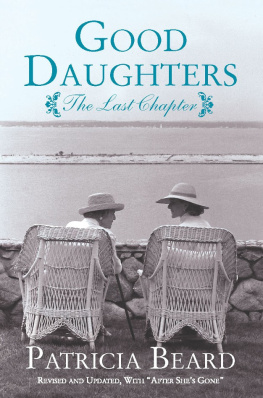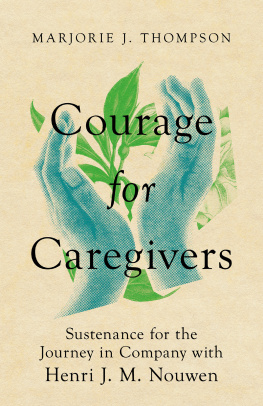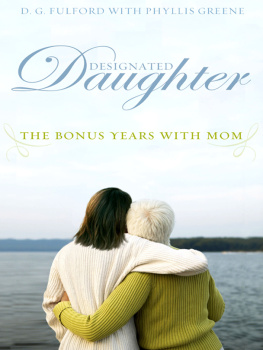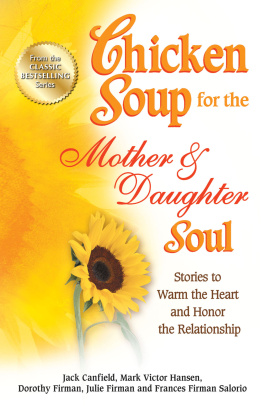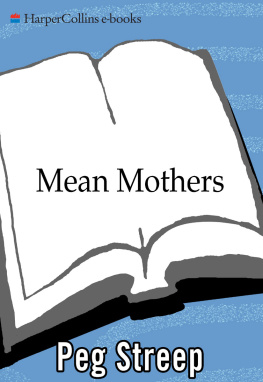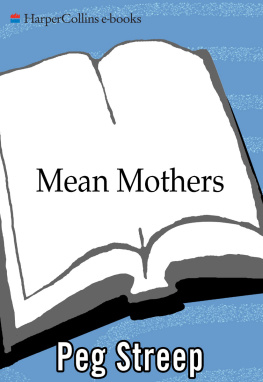Jeanne R. Lord, PhD, began her career with a senior citizens nutrition program, followed by an appointment to the University of Illinois Cooperative Extensions Adult Life and Aging Team. In addition, she taught at Northern Illinois University. In 2000, Dr. Lord returned to her alma mater, Eastern Illinois University (EIU), where she is currently a professor in the Department of Human Services and Community Leadership. During her tenure at EIU, she has served as associate dean for ten years and then as interim dean for one year for the College of Health and Human Services. She has presented at numerous state, national, and international conferences and has published in professional journals. She has received university awards for teaching, research, service, and leadership.
It is a privilege to acknowledge and thank, with sincere appreciation, the ten families who so graciously gave of their time and allowed me to share in their lives. A special thank-you goes to Dr. Loretta Prater for her support and encouragement. I extend my respect and friendship to a brave, strong, and talented woman. A special note of thanks goes to Dr. Charlotte England for her early direction, guidance, and insights. Love and thanks goes to my son, Riley, and my daughter, Anna. They are a source of inspiration and a shining light in my life. A special tribute goes to my late grandmother, Eileen Welch, who served as the inspiration for the writing of this book. She died on the same day that I learned that this book would be accepted for publication. Eileen was ninety-nine and a half and was full of generosity and beauty. Her children, grandchildren, and great-children will never forget how their lives were changed by her love.
Abel, E. Adult Daughters and Care for the Elderly. Feminist Studies 12 (1986): 47997.
Abel, Steven. Social Security Retirement Benefits: The Last Insult of a Sexist Society. Family Court Review 36, no. 1 (1998): 5564.
AgingCare. Connecting Families with Elder Care, Senior Housing Caregiver Support. https://www.agingcare.com/.
Archbold, Patricia. Impact of Parent Caring on Women. Family Relations 52 (1983): 3945.
Bhanoo, Sindya. Pandemic Forces Family Members into New Role. Washington Post, March 23, 2020.
Brody, Elaine M. Parent Care as a Normative Family Stress. Gerontologist 25 (1985): 1929.
Cantor, M. H. The Informal Support System: Its Relevance in the Lives of the Elderly. In Aging and Society, edited by E. Borgatta and N. McCluskey, 13147. Beverly Hills, CA: Sage, 1980.
Centers for Disease Control. Funeral Guidance. https://www.cdc/gov/coronavirus/2019-ncov/daily-life-coping/funeral-guidance.html.
Chappell, N. L. Aging and Social Care. In Handbook of Aging and the Social Sciences, edited by R. H. Binstock and L. K. George, 43854. San Diego, CA: Academic Press, 1990.
Clipp, E. C., and L. K. George. Caregiver Needs and Patterns of Social Support. Journal of Gerontology 3 (1990): S10211.
Fisher, L. R., and C. Hoffman. Who Cares for the Elderly: The Dilemma of Family Support. Research in Social Problems and Public Policy 3 (1984): 169217.
George, L. K., and L. P. Gwyther. Caregivers Well-Being: A Multi-dimensional Examination of Family Caregivers of Demented Adults. Gerontologist 25 (1986): 25359.
Hartford, M. E., and R. Parsons. Groups with Relatives or Dependent Older Adults. Gerontologist 22 (1982): 39398.
Haug, M. R. Home Care for All Ill ElderlyWho Benefits? American Journal of Public Health 25 (1985): 12728.
Horowitz, Allan. Family, Kin and Friend Networks in Psychiatric Helpseeking. Social Science & Medicine 12 (1978): 297304.
Johnson, Elizabeth S., and Barbara J. Bursk. Relationships between the Elderly and Their Adult Children. Gerontologist 17 (1983): 9096.
Johnson, Richard, and Claire Xiaozhi Wang. The Financial Burden of Paid Home Health Care on Older Adults: Oldest and Sickest Are Least Likely to Have Income. Health Affairs 38 (2019): 9941002.
Kinney, Jennifer M., and Mary Ann Paris Stephens. Hassles and Uplifts of Giving Care to a Family Member with Dementia. Psychology and Aging 4, no. 4 (1989): 4028.
Kbler-Ross, Elisabeth. On Death and Dying. New York: Macmillan, 1969.
Lawton, M. P., M. H. Kleban, M. Moss, M. Rovine, and A. Glicksman. Measuring Caregiving Appraisal. Journal of Gerontology 44 (1989): 6171.
Lee, Gary R., and Eugene Ellithorpe. Subjective Well-Being among the Elderly. Journal of Marriage and the Family 45 (1982): 45765.
Mindel, Charles H. Multigenerational Family Households: Recent Trends and Implications for the Future. Journal of Gerontology 19 (1979): 45663.
Mindel, Charles H., and Roosevelt Wright. Satisfaction in Multigenerational Households. Journal of Gerontology 37 (1982): 48389.
Montgomery, R. J. V., and E. F. Borgatta. The Effects of Alternative Supportive Strategies on Family Caregiving. Gerontologist 29 (1989): 45764.
National Alliance for Caregiving and AARP. Caregiving in the U.S. June 2015. https://www.aarp.org/content/dam/aarp/ppi/2015/caregiving-in-the-united-states-2015-report-revised.pdf.
National Institute on Aging. Alzheimers Caregiving: Changes in Communication Skills. https://www.nia.nih.gov/health/alzheimers-caregiving-changes-communication-skills.
. Depression and Older Adults. https://www.nia.nih.gov/health/depression-and-older-adults.
. Do Memory Problems Always Mean Alzheimers Disease? https://www.nia.nih.gov/health/do-memory-problems-always-mean-alzheimers-disease.
. Health Information. https://www.nia.nih.gov/health.
. Long Distance Caregiving. https://www.nia.nih.gov.health/caregiving/long-distance-caregiving.
. Mourning the Death of a Spouse. https://www.nia.nih.gov/health/mourning-death-spouse#what.
. Noticing Memory Problems and What to Do Next. https://www.nia.nih.gov/health/noticing-memory-problems-what-do-next.
. Tips for Improving Communication with Older Patients. https://www.nia.nih.gov/health/tips-improving-communication-older-patients/.
. What to Do after Someone Dies. https://www.nia.nih.gov/health/what-do-after-someone-dies/.
. When Its Time to Leave Home. https://www.nia.nih.gov/health/when-its-time-leave-home.
National Institute on Mental Illness. Depression. https://www.nami.org/About-Mental-Illness/mental-health-conditions/depression/overview.
Noelker, L. S., and D. M. Bass. Home Care for the Elderly Persons: Linkages between Formal and Informal Caregivers. Journal of Gerontology 44 (1989): 53670.
Older Womens League. Failing Americas Caregivers: A Status Report on Women Who Care. Washington, DC: OWL, 1989.
Reece, D. T., and H. Hageboeck. Intergenerational Care Providers of Noninstitutionalized Frail Elderly: Characteristics and Consequences. Journal of Gerontological Social Work 5 (1983): 2134.
Social Care Institute for Excellence. Reminiscence for People with Dementia. https://www.scie.org.uk/dementia/living-with-dementia/keeping-active/reminiscence.asp.
Sollitto, Marlo. Dealing with an Elderly Parents Difficult Behavior. AgingCare.com, November 20, 2020. https://www.agingcare.com/articles/how-to-handle-an-elderly-parents-bad-behavior-138673.htm.
Steinmetz, S. K. Dependency, Stress, and Violence between Middle-Aged Caregivers and Their Elderly Parents. In Abuse and Maltreatment of the Elderly: Causes and Interventions, edited by J. Kosberg, 13449. Boston: John Wright, 1983.
Stoller, Eleanor P. Elder-Caregiver Relationships in Shared Households. Research on Aging 7 (1985): 14593.
Stoller, Eleanor P., and Karen L. Pugliesi. Other Roles of Caregivers: Competing Responsibilities for Supportive Resources.


